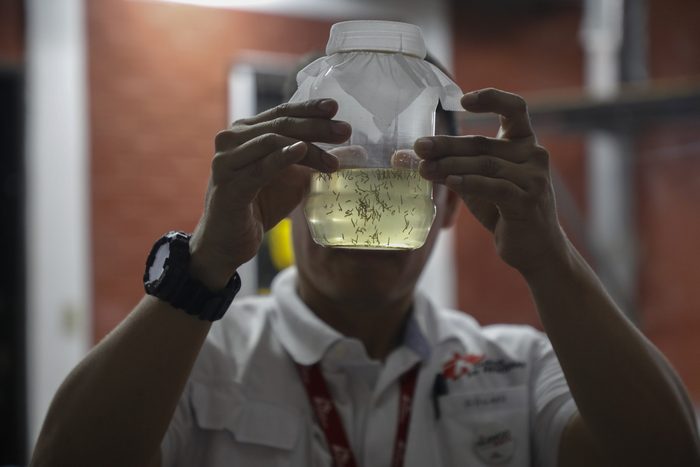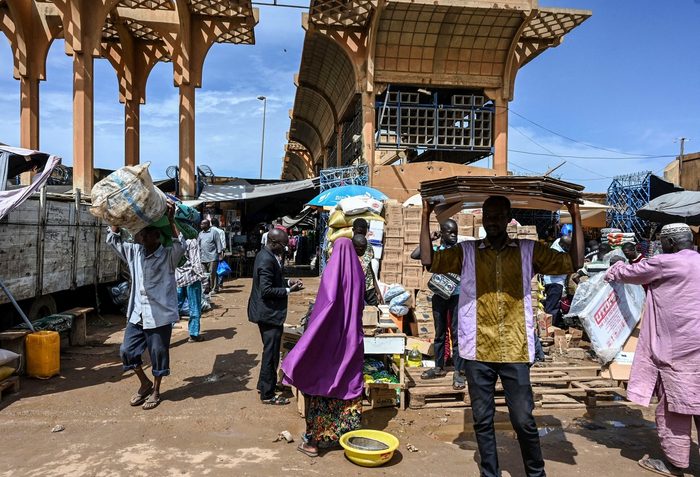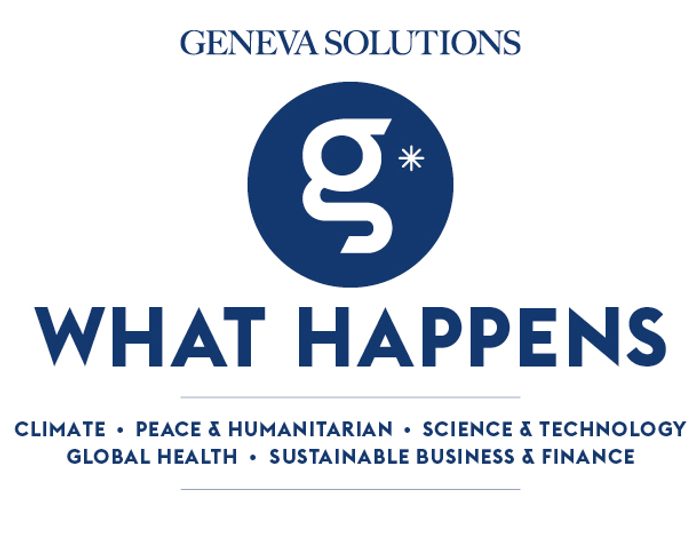Hi there, this is Michelle. As climate change leads to the spread of certain diseases, health organisations are being forced to think out of the box.
A landmark trial in Switzerland shedding light on enforced disappearances in Belarus in the 1990s started yesterday, and two humanitarians worry about the impact of sanctions on the civilian population in Niger following the military coup. |

|

Edgard Boquín, a project leader working with Médecins sans Frontières holds a glass jar filled with mosquitoes before their release in neighborhoods rife with dengue in Tegucigalpa, Honduras, 22 August 2023. (Keystone/AP Photo/Elmer Martinez)
|
|
Mosquito-to-toe: the race to contain climate-sensitive diseases.
Under the scorching summer temperatures and the heavy rainfall, the buzzing of mosquitoes has been particularly loud this year. Aside from the annoying sound, the scrawny little creatures have brought with them a surge in dengue infections across Latin America and some parts of Asia. In an effort to try out innovative solutions, MSF launched this month a project in Honduras to use bacteria to make it difficult for mosquitoes to transmit diseases.
Geneva Solutions (EN)
|
|
Here’s what else is happening
|

Customers shop at Niamey's main market on 8 August 2023. (Keystone/AFP)
|
|
|
GS news is a new media project covering the world of international cooperation and development. Don’t hesitate to forward our newsletter!
Have a good day!
|

|
|
Avenue du Bouchet 2
1209 Genève
Suisse
|
|
|
|









